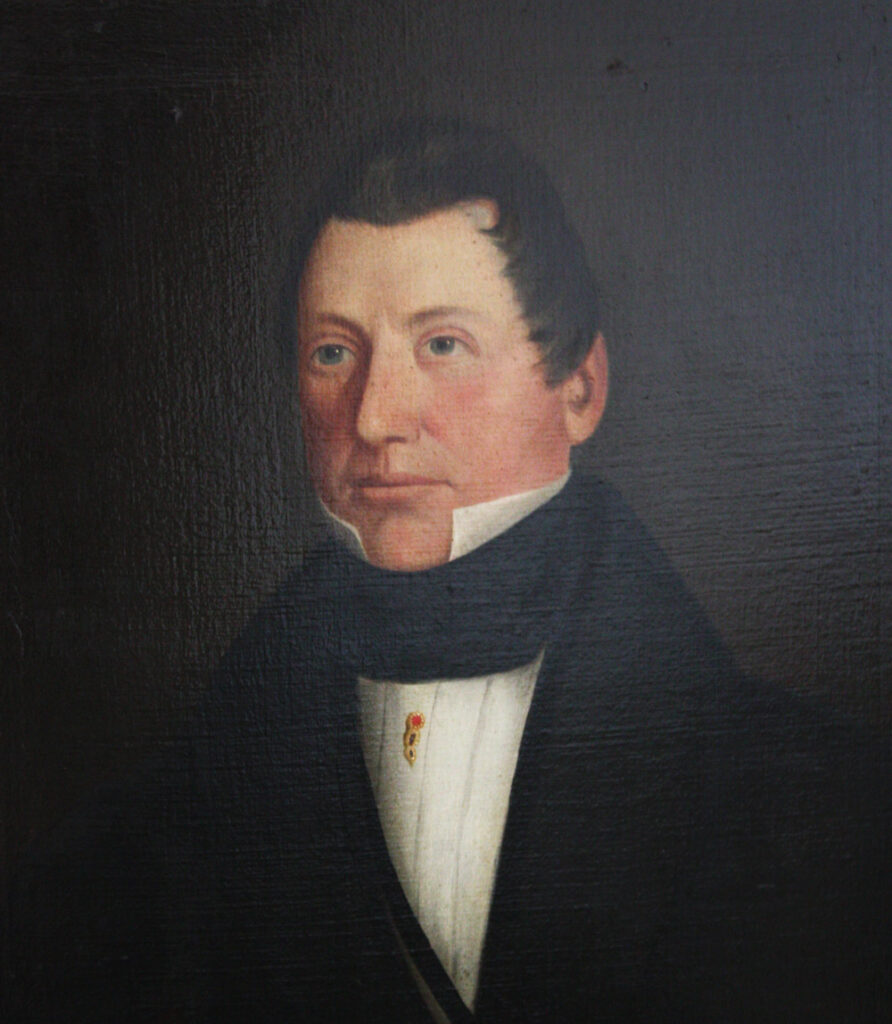Stanley Bagg (1788-1853) was a successful Montreal merchant, but he is best remembered for his brief foray into politics. Unfortunately, he probably would have preferred that this chapter of his life be forgotten.
In 1832, a by-election was held to fill a vacancy in the Legislative Assembly of Lower Canada seat for Montreal West, an area that included today’s downtown, from the St. Lawrence River to Mount Royal. Bagg, my three-times great-grandfather, was the candidate of the English party. His opponent was Daniel Tracey (1794-1832), an Irish-born doctor and journalist whose supporters included reform-minded members of the Patriote party.

This was a period of increasing French Canadian nationalism and growing calls for responsible government. Although the elected Legislative Assembly debated and passed bills, the appointed Legislative Council had to approve them. That meant all decisions were effectively controlled by the colony’s British administrators.
It was also a time when elections were rough affairs. There was no such thing as a secret ballot: voters announced their choices to the returning officer, who wrote them down. Each candidate could challenge would-be voters to ensure they met the legal qualifications to vote, and candidates routinely hired “bullies” to try to prevent their opponents’ supporters from reaching the polling station. Furthermore, an election could continue for days, as long as at least one vote was cast each hour until the daily closing time.
Bagg probably did not expect a difficult race. Although he was born in the United States, he grew up in Montreal and knew the community well. He had the support of most of the city’s leading merchants. His platform included promises to promote the city’s prosperity and the cause of education, to improve communications, and to protect religion and the liberty of conscience. And although he was the establishment candidate, he spoke publicly in favour of political reform on at least one occasion.
As it turned out, neither candidate established a clear lead, and the voting process, which began on April 25, lasted for almost a month. Bagg’s supporters included American, English and Scottish merchants and some moderate French Canadians. Most of the city’s Irish residents voted for Tracey, as did both working class and well-educated French Canadians.
The candidates’ bullies made trouble from day one. Magistrates and special constables were hired to maintain order, but as time passed, nerves frayed. In mid-May, several of the magistrates requested the assistance of the British army in case a riot broke out. The next day, May 21, there was a scuffle on the street near the polling station. Although calm was restored, one of the magistrates was concerned that Tracey’s supporters were planning violence, so he summoned the troops. Another of the magistrates read the Riot Act, meaning that the crowd in the nearby square had to disperse within an hour. Nevertheless, orderly voting continued. When the polling station closed at the usual 5 o’clock, Tracey had a three-vote lead.
After the candidates started heading home, some of Tracey’s supporters began to throw stones. So did some of the constables and the Bagg supporters. The officer in charge of the troops ordered his men to open fire on the crowd. They fired one round and killed three people, all of them innocent bystanders.
The following day, Bagg released a statement in which he announced his withdrawal from the election, and Tracey was pronounced the winner. Tracey died several weeks later, a victim of the cholera epidemic that swept through the city.
Neither a coroner’s inquest, nor a grand jury investigation, nor a special inquiry by the Legislative Assembly found fault with conduct of the army or civil authorities on May 21. Meanwhile, the English party and the Patriote party continued to blame each other. Most history books repeat the conclusions of the inquiries: the three unfortunate deaths occurred when the army restored order. But there are questions as to whether there actually was a riot. From a 21stcentury perspective, it appears that several people made serious errors that day.
In 1837, a variety of factors, including the need for political reforms in Lower Canada, led the Patriotes to launch a full-scale rebellion. The violence that occurred in 1832 no doubt contributed to the buildup of tensions in the colony. Bagg served as a major in the 1stBatallion Loyal Montreal Volunteers during that rebellion.
According to a family story, Bagg felt terrible about the deaths of those innocent people, and he never ran for political office again. My ancestor was not personally responsible for the deaths of the three bystanders, nor was he responsible for exonerating those who were at fault, but Bagg’s use of bullies to try to win the election did not make him look good.
Notes
My main source for this article is The Riot That Never Was: the military shooting of three Montrealers in 1832 and the official cover-up, by James Jackson (Montreal: Baraka Books, 2009).
Jackson researched newspapers, documents and the testimony recorded in the inquiries that took place and he concluded that the riot never happened. Jackson did not, however, have much information about Stanley Bagg himself, and some of the details he gave about him were incorrect. In my next post, I will write an overview of Stanley Bagg’s life.
